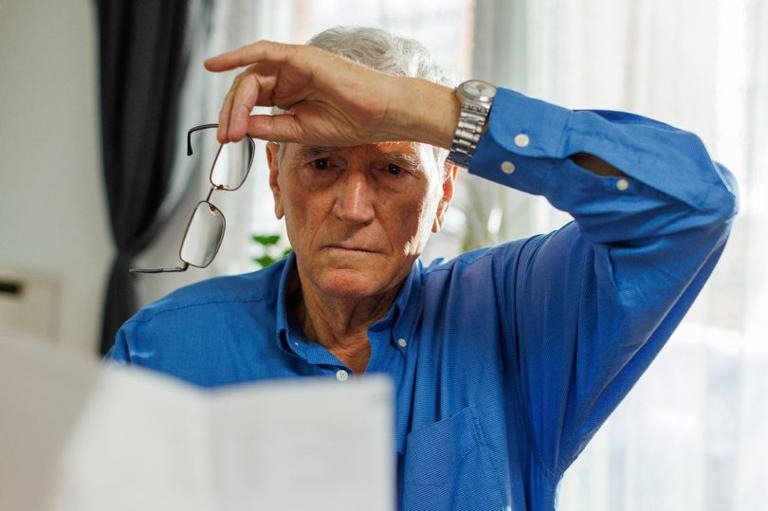If you’re over state pension age in the UK and you’re unable to do your daily chores alone because of a physical or mental impairment, there’s good news. You can get up to £441.60 every four weeks under the UK government’s Attendance Allowance scheme. This article will explain in a simple way, like a friend, how it works, the rules, and how you can get it.
What is it?
Attendance Allowance is a tax-free, non-means-tested benefit. Meaning – it doesn’t depend on your money, savings or income. It’s just based on how much help you need with everyday life.
Its main purpose is to help people meet their basic daily needs – such as cooking, bathing, dressing, taking medication and help with safety.
It helps to give you some independence in your lifestyle—you don’t have to rely on others for support, and you can live your own way.
How much money can you get?
The 2025/26 rate provides the following amounts:
- Lower rate: £73.90 per week → £295.60 over 4 weeks
- Higher rate: £110.40 per week → £441.60 over 4 weeks
The annual amount can be up to around £5,740.80.
If someone close to you helps a lot every day, such as with bathing, cooking or taking medicines, you may be eligible for the higher rate.
Who can get it?
Eligibility is pretty simple—here are some key points:
Age
You must be over state pension age.
Need for assistance
You need help or supervision from an alien with daily tasks—someone to make sure you are safe.
Problem lasting for at least 6 months
Help needs to be needed continuously for an average of 6 months (or immediately in the case of a terminal illness).
Living conditions
You must live in Great Britain and have lived there for at least 2 of the last 3 years.
Immigration status
You must not be subject to immigration control.
Mobility not covered
This benefit does not apply if you have mobility issues alone—in such cases Mobility Allowance must be applied for.
What illnesses or conditions are covered?
Many common and general illnesses are covered by this benefit. Here are some examples:
- Arthritis that makes it difficult to dress or bathe
- Dementia or Alzheimer’s that requires monitoring
- Heart disease that makes breathing or fatigue difficult to perform
- Movement disorders like Parkinson’s that require support
- Vision or hearing loss that requires monitoring
- Mental health issues like depression, anxiety that require monitoring and support
- And if there are vulnerabilities or underlying problems, or that make it difficult to function, that persist
The goal is to see how your daily life is being affected, not just the disease.
How to apply?
1. Get the form
- Download the form from the gov.uk website
- Or call 0800 731 0122 to get it
2. Fill it in carefully
- Give a realistic picture of your daily routine—example: “My hands don’t close quickly enough and it takes me up to 15 minutes to get dressed.”
- Make sure you write how often you need help—every day or three or four times a week?
- Give real-life examples: “I’m scared to death I’ll fall while cooking in the kitchen.”
- Be as clear and realistic as you can be
3. Send the form
Use the same envelope you sent the form in—no postage needed, as the government will send it.
4. Advice tips
- If you have trouble writing, don’t say no one will help
- Examples of pain, feelings and everyday problems are good to include on the form
- Ask a friend, family member or local agency for advice to avoid giving the wrong information

When will you get paid?
- Payments are made every four weeks and are deposited directly into your bank account
- If the payment date falls on a bank holiday or weekend, the payment is made before that time
- Payment notifications may be sent as a separate SMS or on the portal
What if you live in Scotland?
In Scotland this facility is gradually changing to Pension Age Disability Payment.
You will be informed about the changes to the process and the payment will be transferred automatically.
Some common questions and tips
What if I live alone?
You will definitely be able to claim it—Attendance Allowance is paid based on how much help you need, not who is helping you.
Will taking it stop other government benefits?
Not at all. Receiving Attendance Allowance can also make you eligible for other benefits such as Pension Credit or Council Tax Reduction.
How long does the application process take?
It can sometimes take 8–12 weeks.
But if you have a terminal illness, a fast-track process applies, and payments can be made sooner.
Our advice
Many of my clients have said the same thing—apply quickly. The longer you wait, the later payments will start, and this can affect your benefits.
A late application can mean missing out on a month’s money. Losing two months’ money in a row can hurt savings. If you’re thinking “I might need it”, fill out the form and decide later.
Your trusted friend’s advice
Attendance Allowance helps when you can’t manage your daily life. It’s tax-free and doesn’t interfere with your pension or other support.
Read more: DWP to Cancel 4 Benefits: Who Will Be Affected in 2025-26?
It’s best to apply on time—every missed week can have an impact on your household’s finances. If you face a blockage or find that your information is incorrect, the Citizens Advice Bureau offers all kinds of help for free.
Conclusion
If you’re over the State Pension Age and need help with daily chores, Attendance Allowance is a useful and reliable aid.You can get anywhere from £295.60 to £441.60 every four weeks, which can easily make your daily routine easier.
The application process is straightforward—prioritising input, examples and consistent payments.It will also increase your self-reliance in life and provide you with financial freedom.

